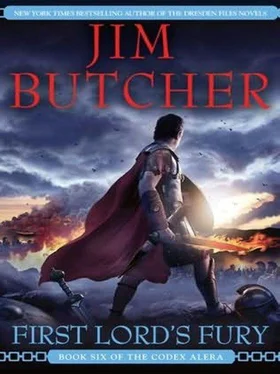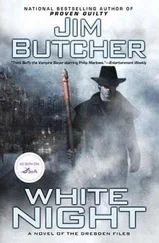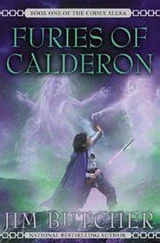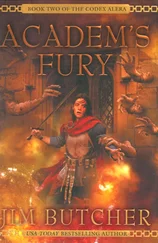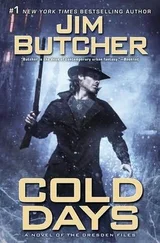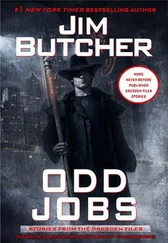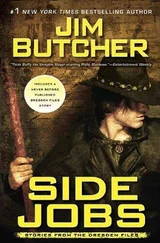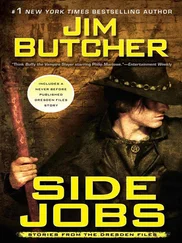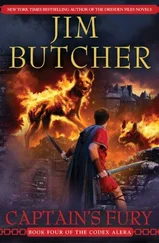Refugees had been repeatedly instructed how to react to a given horn signal, in the event of a moment just such as this. It had probably done a minimal amount of good. Even perfectly simple tasks were sometimes difficult or impossible under the conditions of an actual life-threatening situation. It was why soldiers trained and drilled endlessly—so that when they were numb with terror, they could, nonetheless, do everything they needed to do.
Once the wagons had stopped, the teamster sounded the rally call again on his horn. Some of the nearest refugees cried out and ran for the dubious shelter of the circled wagons. Others saw them and followed. Ehren supposed it was even possible that some of them had understood the signal. He saw dozens of the refugees who had run for the trees come running back. Some, but not all of them. Ehren shivered. Anyone who believed that the forest would provide any haven from the vord was going to be rudely surprised. He had already seen at least a dozen mantis warriors go gliding into the trees.
The Legions and the vord hammered at one another, while Citizens and vordknights streaked back and forth overhead in the rain. Drums rumbled, and men died. The Aleran order of battle had been swallowed by pure chaos, but the vord seemed to have no such difficulty. In absolute terms, the number of warriors they’d slipped through the gap in the Legion lines was not sizeable—but those vord, rushing wildly up and down through the column, had an effect on the Aleran troops entirely disproportionate to their numbers. They shrieked and rushed around, striking randomly as targets presented themselves, panicking men and animals alike.
So many horn signals were blowing that Ehren could not possibly tell one from another, the net result being a meaningless cacophony.
And then Ehren heard the drums.
He had never heard their like before—big, basso, ocean-deep drums whose voices rumbled so low that they were more felt than heard. But if the drums’ voices were strange to him, their tone and rhythm were perfectly clear: Their voices were angry.
Perhaps thirty of the mantis warriors came rushing toward the circled wagons in a cohesive pack, following a trail of screaming refugees who ran in vain toward their fellows. The vord cut them down as they fled, despite the efforts of a mismatched group of horsemen from three different cities’ Legions, who tried to force the vord off the Aleran civilians.
“Spears!” Ehren screamed, and teamsters and carters began tugging spears from their racks on the side of the wagon. They armed themselves, then started passing extras out to any refugee willing to fight, and the ring of wagons suddenly bristled with martial thorns.
The mantis-form vord let out shrieks of eager hunger, and the foremost of them bounded into the air and came with its limbs extended. Ehren got to watch it fall toward him, and only barely had time to brace his spear on the bottom of the wagon, then to crouch down beneath it. The vord came down on the spear, which punched its way through the armor on the creature’s belly and partially emerged from its back. The vord wailed in pain, and its legs thrashed viciously. One scythe plunged through the floor of the wagon. Ehren, crouched down, received several blows against his own shoulders and flanks—and then the teamster let out a bellow and shoved the vord off Ehren and back onto the ground outside the circle of wagons, with Ehren’s spear still thrust through it.
Ehren seized the first weapon that came to hand, a gunnysack loaded with turnips. As another vord attempted to climb onto the wagon, he spun the bag of vegetables and struck hard at the vord’s face. His blow didn’t harm the mantis warrior, but it did distract the creature long enough for the teamster to hit it with a sizeable piece of lumber—in fact, Ehren realized, it was the handle to the wagon’s brakes. The vord reeled back under the blow, shaking its head, stumbling drunkenly on its slender legs.
And the drums grew louder.
Ehren was never sure how much time went by during that desperate struggle in the rain. He noted several hollow squares of legionares , facing outward, with groups of refugees taking shelter behind a wall of muscle and steel. More legionares were on the move, but for the moment, at least, the circled wagons were on their own.
Twice Ehren watched wagon horses panic and break out, trying to escape. The vord brought them down and tore them to pieces. One luckless teamster found himself in the back of the wagon when his horse bolted. The vord made no distinction between him and his draft animal. Half a dozen men were dragged from the wagons. Several smaller mantis warriors rushed forward and under the wagons entirely and tore into the refugees gathered inside, spilling more Aleran blood before they could be brought down.
And all the while, the drums grew louder.
Ehren ripped a sleeve from his shirt and used it to swiftly wrap his teamster’s leg after the man had received a badly bleeding wound. More men had fallen. The screams of terrified children rang shrilly in the air. Ehren took up the broken haft of a spear and used it as a club, striking out at heads and eyes, though he knew the weapon would be useless for anything but a mild deterrent. The vord seized the wagon next to his own and dragged it out of the circle, opening a gap in the frail defensive formation. Ehren screamed in fear and protest, as a detached, calm portion of his mind noted that once the vord were inside the circle, the rest of his life would be numbered in seconds.
And the ground began to shake.
A bestial, massive bellow rose from a basso rumble to a whistling shriek. Ehren whipped his head around in time to see a large black gargant crash into the vord attacking the circled wagons. The beast was a monster, even for its breed, the top of its hunched back standing at least twelve feet above the ground. Its stocky, rather squat body was vaguely reminiscent of its cousin, the common badger, though its thick neck and broad head clearly distinguished it from the far smaller beast, especially when one considered the three-foot tusks thrusting forward and curving slightly up from the gargant’s jaw.
This particular beast was a battle-scarred old brute, with the white seams of hair indicating the presence of scars upon the beast’s flesh—a veteran brawler. The swiftest of the vord scattered from the gargant’s path. The slower or less lucky vord did not get clear in time, and the gargant’s hammering paws and sheer mass smashed them to a disgusting, gelatinous paste.
Seated atop the gargant’s enormous back was the largest Marat Ehren had ever seen. His broad shoulders were so heavily sloped with muscle that it almost seemed a deformity. A faded red Aleran tunic looked as though the sleeves had been cut away from it to make room for arms thicker than Ehren’s thighs, and a heavy, braided plait of the same material bound his long hair back from his face. In his right hand he carried a long-handled cudgel, and as Ehren watched, the Marat leaned far over the side of the gargant, clutching a braided leather rope to keep from falling, bracing his feet on the gargant’s flanks like a man climbing down a cliff face on a line. The club swept through the air in a graceful arc, and quite literally knocked a mantis warrior’s head from its chitin-armored shoulders.
“Good day!” boomed the Marat in cheerful, heavily accented Aleran. A sweep of his club smashed a leaping mantis warrior from the air before it could touch him, then he hauled himself lightly back up onto the gargant’s back. He shouted something and tapped the gargant with the handle of his cudgel, and the beast bellowed again, batting another vord away from the wagons with its clawed paws.
Ehren stared, stunned.
The huge black gargant and his rider had not come alone.
Читать дальше
